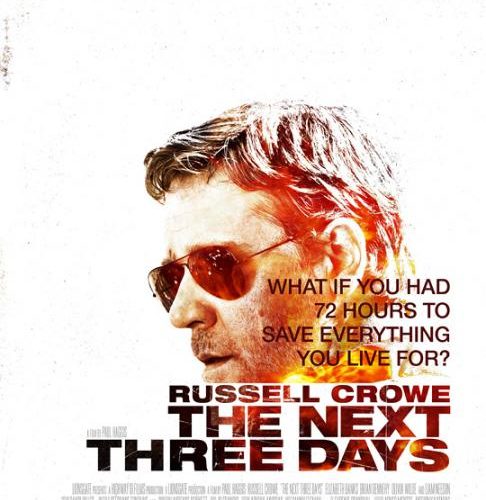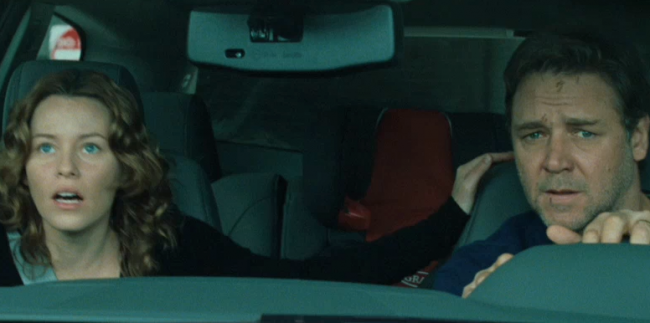His writing may be somewhat derivative and his direction may be somewhat bland, but few filmmakers can build a scene like Paul Haggis. What starts as the next logical puzzle piece transforms with a gesture, a line or a look from a character in said scene, and the entire demeanor of the moment changes. Crash was full of them and In The Valley Of Elah ended with a particularly miscalculated one. The Next Three Days, though it lacks the topical “importance” of his two previous films, progresses scene by scene to a breakneck ending, complimented by full characters leads Russell Crowe and Elizabeth Banks fill out nicely.
Thirty or forty years ago, anti-studio directors like Sam Peckinpah or Sam Fuller would’ve taken on material as primal (and action-packed) as this: a wife is arrested for a brutal murder and sent to prison for life, leaving her husband with their young son. The husband, run full out of options, must do something. That something involves breaking a lot of laws in order to break his potentially guilty wife out of jail.
To learn how to do this he enlists the aid of Liam Neeson, an actor who’s made an 11th-hour career out of playing good men on the edge of right and wrong. Here he plays a professional escapist who knows the Pittsburgh jail system like the back of his hand. Crowe’s John takes good notes, and then writes them large on a wall in his house so the whole audience can see.
The meat of the conversations between John and Banks’ Lara while she’s behind bars is noticeably recycled. They talk about what the lawyer (a strange cameo by Daniel Stern) thinks, what they think and, finally, about their son. Crowe and Banks elevate these scenes and make them worth watching. Haggis also shoves the camera in both of their faces during these moments, supplying brutal close-ups that are refreshingly uncomfortable to stare at in a large movie theater.
John makes honest mistakes in his transformation into prison break artist. Haggis and Crowe carry these sequences off with enough humility to find the funny in them, such as when John fails to properly test out a home-made bump key and nearly gets arrested.
Crowe’s been playing regular joes more often these days (State of Play) and his added weight helps his case. Here he thankfully never turns into Maximus or Robin Hood. Banks, who up until now has been more of a comedic actress, holds her own against her leading man husband. Watching her Lara turn from loving wife to heartbroken wife to suicidal wife to angry wife is something near fascinating, even though Haggis’ script doesn’t allot enough time for the character’s dynamic change.
And although the action-packed third act doesn’t disappoint, the most dramatic scene of the film is built right before the grand finale, in which John’s father (an understated Brian Dennehy) discovers what his son is about to do, and says goodbye, knowing he’ll never see him again. It’s the stuff good actors kill to get their hands on, and Crowe and Dennehy don’t waste the opportunity.

Will you see The Next Three Days? What do you think of Mr. Crowe?


